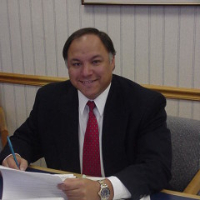Mascotte RICO Act Lawyer, Florida
Sponsored Law Firm
-
 x
x

Click For More Info:
-
Joseph A. Gasparro, PA
813 Jackson Rd Jacksonville, FL 32225» view mapCriminal Defense Law Serving the Best Interests Of Our Clients
When you need accurate representation for criminal defense issues, Joseph Gasparro is there for you.
800-971-8621
Not enough matches for Mascotte RICO Act lawyer.
Below are all Mascotte Criminal lawyers.
Timothy David Lucero
✓ VERIFIEDAccident & Injury, Criminal, Estate
Timothy Lucero is a practicing lawyer in the state of Florida.
FREE CONSULTATION
CONTACTBryce James Davis
Estate Planning, Bankruptcy, Federal Appellate Practice, Criminal, Estate
Status: In Good Standing Licensed: 10 Years
Denise Marie Mcbride
Power of Attorney, Juvenile Law, Real Estate, Bankruptcy
Status: In Good Standing Licensed: 21 Years
Heath Bowen Nailos
Medicare & Medicaid, Family Law, Child Support, Criminal, Bankruptcy & Debt
Status: In Good Standing
James Vincent Modica
Family Law, Divorce & Family Law, Criminal, Business
Status: In Good Standing Licensed: 14 Years
James Rogers Agar
Government, Military & Veterans Appeals, Criminal
Status: In Good Standing Licensed: 2 Years
 Joseph Gasparro Jacksonville, FL
Joseph Gasparro Jacksonville, FL AboutJoseph A. Gasparro, PA
AboutJoseph A. Gasparro, PA Practice AreasExpertise
Practice AreasExpertise

